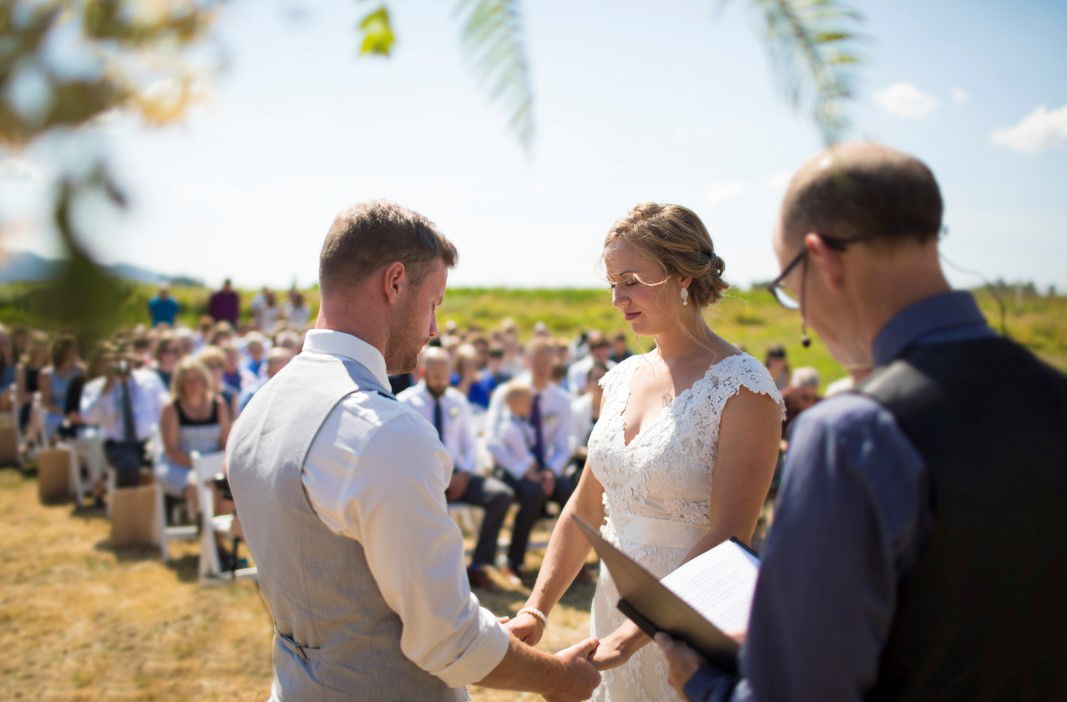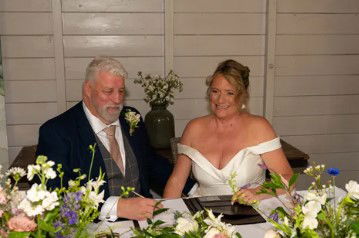Celebrants

When it comes to life’s important moments—such as weddings, naming ceremonies, funerals, or end-of-life planning—working with both a celebrant and a will writer can ensure that all aspects of your journey are thoughtfully and legally considered. While their roles might seem separate, celebrants and will writers often collaborate effectively to ensure that clients are supported across a variety of life events. Here are a few examples of when a client might need both services and how they can work together seamlessly.
The Role of a Celebrant
Celebrants are trained professionals who lead and officiate various ceremonies, including funerals, memorial services, weddings, naming ceremonies, and other significant life events. Their role is to create meaningful ceremonies that reflect the values, personalities, and wishes of the individuals they are honouring. They also provide valuable support throughout the planning process for any life celebration.
Why Celebrants and Will Writers Should Collaborate

While the advantages of their collaboration are evident, it's important to note that there can be challenges in aligning their roles and responsibilities. By working together, they can offer clients a comprehensive service that meets the practical and emotional needs associated with life planning from the beginning to the end. However, navigating these roles and responsibilities can require clear communication and mutual respect.
- Supporting Clients Throughout the Process
Creating a will and planning a funeral or memorial service can be overwhelming for many individuals, especially during a time of loss. A will writer manages the legal aspects, while a celebrant focuses on the deceased's personal elements. Together, they provide a comprehensive approach, guiding clients through each process step and ensuring no detail is overlooked. - Creating Meaningful Funeral Plans
While the will writer concentrates on distributing assets, the celebrant is dedicated to capturing the essence of a person's life and creating a memorable tribute. Clients may have specific requests for their funeral or memorial service, which can be detailed in their will or Letter Of Wishes. For example, the will might contain instructions on the type of service they wish to have, which can be communicated to the celebrant. An informed celebrant can personalise the ceremony to align with the individual’s values and personality, offering a heartfelt tribute. - Addressing Sensitive Matters with Care
Death is a deeply emotional topic, and many individuals struggle with both the legal aspects of their estate and the emotional challenges of funeral planning. Engaging two professionals—one to handle legal and financial matters and the other to provide emotional support—ensures that clients receive comprehensive assistance. Will writers can confirm that clients' wishes are legally valid, while celebrants help them express their desires for a personal ceremony. This dual support provides essential peace of mind during a difficult time. - Ensuring Clear Communication
Effective communication is crucial when planning for end-of-life issues. When celebrants and will writers collaborate, they can ensure that a person’s final wishes are clearly communicated and respected. This lets the celebrant know those instructions well in advance, ensuring that every aspect of the ceremony aligns with the individual's preferences. - Providing a Sense of Continuity
When both professionals work together, they offer a seamless experience for families, blending the legal, practical, and emotional aspects of end-of-life planning. Instead of dealing with different individuals separately, families can feel reassured that the celebrant and will writer are on the same page, working in tandem to provide a service that covers all aspects of the process.
How to Make the Most of This Collaboration
Understanding and mutual respect for each other's roles are essential for celebrants and will writers who wish to collaborate. It is important to approach each client's needs with sensitivity and care, as every family is unique and may have different requirements. Celebrants and will writers can establish referral networks, collaborate on educational events or workshops, and create shared protocols for managing end-of-life planning. For instance, they can refer clients to each other based on the specific needs of the client, or they can create a shared protocol for managing the legal and emotional aspects of end-of-life planning. By building strong relationships, these professionals can become trusted partners, providing clients with enhanced support during difficult times.
Naming Ceremonies
Celebrant-led baby naming ceremonies are becoming increasingly popular as more parents seek ways to welcome their children. These ceremonies provide a unique opportunity for parents to introduce their children to the community in a meaningful way. Celebrants work closely with families to create a ceremony that not only introduces the child but also conveys important values and blessings. The ceremonies can be either religious or non-religious, providing flexibility to the parents. Celebrants help parents select suitable readings, poems, or music that reflect their hopes and dreams for their child's future. The result is a heartfelt ceremony that marks the beginning of the child's life journey.
A godparent serves a moral and religious role, acting as a "sponsor" during a child's naming ceremony. However, being named a godparent or "guardian" in such a ceremony does not establish a legal relationship between the godparent and the child. If both parents were to pass away or become unable to care for the child, the godparent would not automatically become the child's guardian. Without a formal legal document, the role of the godparent does not carry any legal authority. It is important to consult will writers to ensure that guardianship arrangements are legally valid.
Marriage and Civil Partnership:

Weddings are among life's most significant milestones, and couples today often seek celebrants to authentically express their love stories. They work closely with couples to craft ceremonies that reflect their unique relationships, values, and cultural backgrounds. Skilled celebrants ensure that every element of the ceremony—from vows to readings and rituals—resonates with the couple's journey. By incorporating religious and secular components, they align the ceremony with the couple's beliefs.
While planning their future together, couples often avoid contemplating mortality. However, the duration of "the rest of my life" is uncertain. Marriage and civil partnerships significantly impact wills and powers of attorney, leading to confusion rooted in myths and misunderstandings.
One crucial task that newlyweds often overlook is updating their wills. Many couples forget to revise their estate planning to reflect their new status and shared assets. Since a wedding is a life-changing event, it's essential for couples to revisit their wills, ideally before but certainly after celebrating their union, to ensure that both partners and any existing children are protected in the event of the unexpected.
Collaborating with both a celebrant and a will writer can help couples navigate this new chapter. The celebrant can offer advice on personalising the ceremony to acknowledge both partners' life journeys and family dynamics. Afterwards, the couple can consult a will writer to update or create a new will that considers shared assets, guardianship for children, and other key decisions. Together, the celebrant and the will writer can guide the couple in aligning both the ceremony and legal documentation to celebrate their union. A skilled will writer such as Fern Wills will keep it light-hearted and recognise the beautiful gifts and protection that you are pledging to each other.
Same-sex ceremonies and will writing both celebrate the deep bond between two people in love. These moments allow couples to express their unique connection in front of friends and family, reflecting their journey together. Will writing is especially important, as it ensures that both partners are recognised and protected under the law, outlining their wishes regarding shared assets and responsibilities. Ultimately, both practices affirm that love is love, highlighting the commitment and respect that define their relationship as they build a future together.

It's important to understand that unless a will is explicitly created in anticipation of marriage or a civil partnership, any existing wills become void upon marriage. For example, Chris at Fern Wills made sure to create his will before marrying to guarantee that his wife would be provided for throughout her life from the moment the will was signed.
Funeral Plans:

Funeral celebrants are skilled at creating personalised eulogies honouring an individual's life journey. They tailor the entire service to reflect the unique qualities of the person being remembered while acknowledging the emotions of those who are grieving.
Celebrants can incorporate cultural, religious, and spiritual elements into the ceremony, ensuring it aligns with the wishes and beliefs of both the deceased and their family. This approach provides comfort and healing to those left behind.
In terms of end-of-life planning, writing a will is essential for clarifying one's wishes and ensuring that loved ones are taken care of. However, funeral wishes should ideally be documented in a Letter of Wishes that accompanies the will, as they technically do not belong in the will itself. This letter should specify who has the final say in making arrangements to avoid any disputes. Will writers advise on the decision-making process and how to document it to avoid family conflict?
By consulting with celebrants and understanding what will help them provide the best service, the will writer can include relevant details in the Letter of Wishes. This collaboration allows the celebrant to deliver the highest quality service for the client.
One common situation where both a celebrant and a will writer are involved is at the end of life. A client may initially consult a will writer to ensure their final wishes are legally documented, including the distribution of assets and the appointment of executors. However, as they approach the end of their lives, they may also want to ensure that their funeral or memorial ceremony reflects their personality, values, and legacy.
In this collaboration, the celebrant, experienced in creating bespoke ceremonies, can assist the client in designing a meaningful service that ties into their life story, beliefs, and wishes. They may discuss specific readings, music, or traditions the client would like to include. Meanwhile, the will writer ensures that these wishes are documented legally, providing clear instructions regarding funeral arrangements if desired.
Inheritance and Family Ceremonies: Bridging Generational Gaps
Another instance where a celebrant and will writer might cross paths is in multi-generational family ceremonies. For example, a family might have a significant birthday or anniversary celebration where the will of a loved one is being read or discussed. Alternatively, a client might wish to leave a legacy message to their family through a ceremony.
How they collaborate: The celebrant plays a vital role in enhancing the emotional and celebratory aspects of the occasion, bringing families together to honour their legacy. At the same time, the will writer ensures that these heartfelt decisions are accurately documented, guaranteeing that the will truly reflects the family’s wishes, assets, and future desires.

Scenario 1:
Mike and Jessica approach their celebrant to express their gratitude for the beautiful and personalised funeral ceremony. Having inherited a significant amount, they are uncertain about whom to consult to ensure that probate is settled smoothly, that assets are invested wisely, and that their increased estate is managed correctly. The celebrant introduces them to Chris from Fern Wills. Recognising that now is not the right time for a detailed conversation, Chris creates a brief emergency will for Mike until he is ready to consider a more bespoke Will package. For Jessica, Chris explained the current situation and agreed to call back in four months when she is prepared to discuss further.
Scenario 2.
Andrea has been diagnosed with terminal cancer and is making arrangements for her funeral and affairs beyond. Chris at Fern Wills is helping her ensure that her Will and Trust accurately reflect her wishes fairly, legally, and tax-efficiently. He also recommends that a celebrant he knows and trusts read the Letter of Wishes and incorporate them into a personalised funeral service.
Scenario 3.
Jo & Sam are planning a civil partnership. They are uncertain about how this will impact their property and an existing will. The celebrant provides them with Chris's contact details at Fern Wills, which offers a free consultation. He prepares the will in anticipation of their marriage or civil partnership, ensuring that it does not need to be rewritten after the ceremony and providing immediate coverage for their honeymoon.
In Conclusion
The collaboration between celebrants and will writers is an effective way to ensure that individuals receive the care, respect, and attention they deserve when planning for life’s key events. By working together, these two professionals can help ease families' emotional and legal burdens during challenging or exciting times.
Offering a seamless service that addresses both practical and ceremonial needs, celebrants and will writers create an experience that honours life, supports loved ones, and ensures a person’s wishes are fulfilled. If you're planning for a significant life event or assisting a loved one, consider how a celebrant and a will writer can partner to provide you with a comprehensive and compassionate service.
Contact us now for a free consultation with no obligation.


